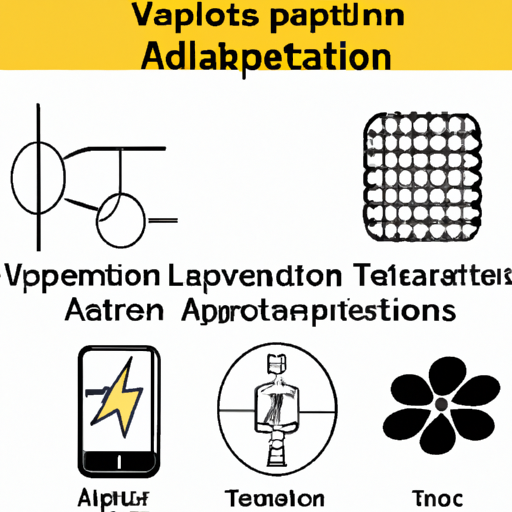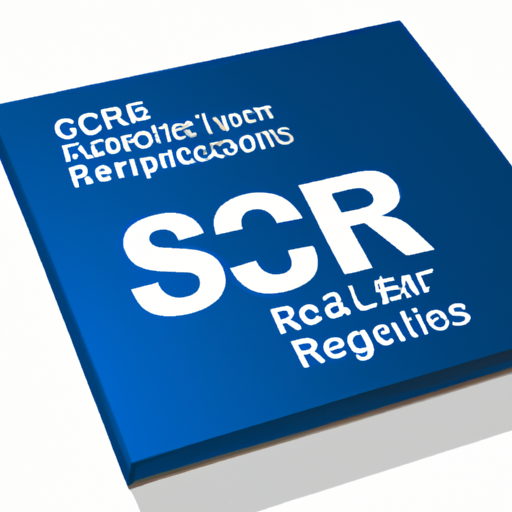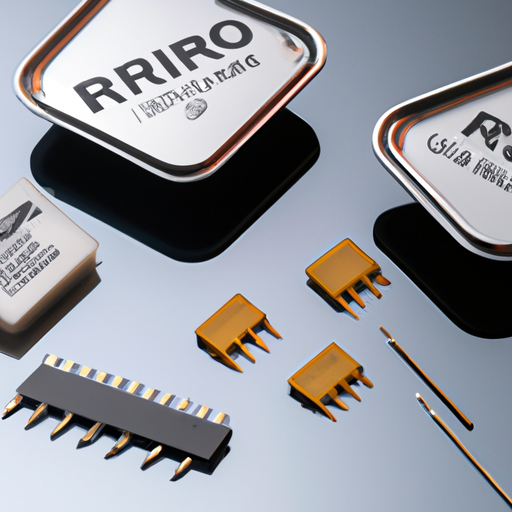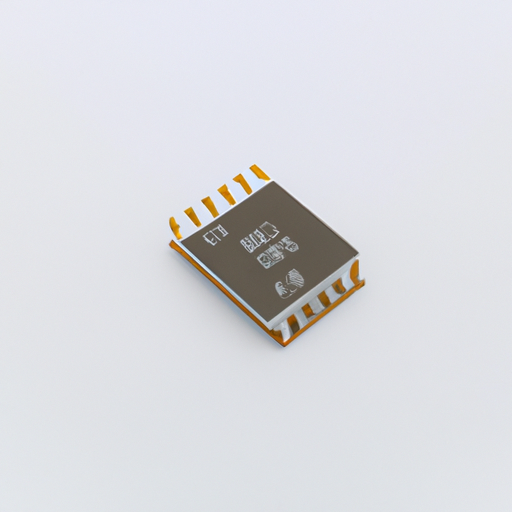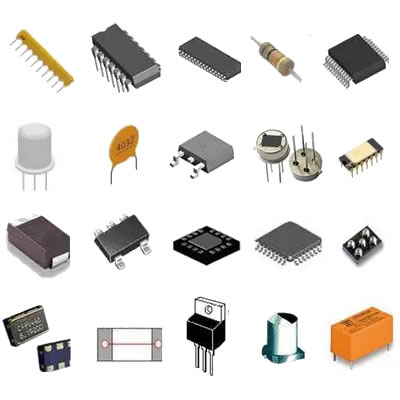What industries are the application scenarios of smart capacitors included in?
What Industries Are the Application Scenarios of Smart Capacitors Included In?
I. Introduction
In the rapidly evolving landscape of modern technology, smart capacitors have emerged as a pivotal component across various industries. These advanced devices not only enhance energy efficiency but also contribute to the stability and reliability of electrical systems. This blog post will delve into the definition of smart capacitors, their significance in contemporary applications, and the diverse industries that benefit from their implementation.
II. Understanding Smart Capacitors
A. Basic Principles of Capacitors
At their core, capacitors are electrical components that store and release energy. They consist of two conductive plates separated by an insulating material, known as a dielectric. When voltage is applied, an electric field forms, allowing the capacitor to store energy. This fundamental principle underpins the operation of both traditional and smart capacitors.
B. Evolution of Smart Capacitors
Smart capacitors represent an evolution in capacitor technology, integrating advanced features such as real-time monitoring and self-regulation. Unlike conventional capacitors, which merely store energy, smart capacitors can actively manage energy flow, making them invaluable in modern applications.
C. Key Features of Smart Capacitors
1. **Real-time Monitoring**: Smart capacitors are equipped with sensors that provide real-time data on voltage, current, and temperature. This capability allows for immediate adjustments to optimize performance and prevent failures.
2. **Self-regulation**: These capacitors can automatically adjust their operation based on the electrical load, ensuring optimal energy usage and reducing waste.
3. **Enhanced Energy Efficiency**: By improving power factor and reducing reactive power, smart capacitors contribute to overall energy savings, making them essential in energy-intensive industries.
III. Industrial Applications of Smart Capacitors
A. Power Generation and Distribution
Smart capacitors play a crucial role in the power generation and distribution sector. They are instrumental in:
1. **Voltage Regulation**: By maintaining voltage levels within specified limits, smart capacitors help prevent equipment damage and ensure reliable power delivery.
2. **Reactive Power Compensation**: They can provide reactive power support, which is essential for maintaining the stability of the electrical grid.
3. **Integration with Renewable Energy Sources**: As more renewable energy sources are integrated into the grid, smart capacitors help manage the variability and intermittency of these energy sources, ensuring a stable supply.
B. Manufacturing and Automation
In manufacturing, smart capacitors enhance operational efficiency through:
1. **Motor Control and Drive Systems**: They improve the performance of electric motors by providing stable voltage and reducing harmonics, leading to longer equipment life and lower maintenance costs.
2. **Power Quality Improvement**: Smart capacitors help mitigate power quality issues such as voltage sags and swells, ensuring smooth operations in automated processes.
3. **Energy Storage Solutions**: They can store excess energy generated during low-demand periods and release it during peak demand, optimizing energy usage.
C. Telecommunications
The telecommunications industry relies on smart capacitors for:
1. **Signal Processing**: They enhance signal integrity by reducing noise and improving the quality of data transmission.
2. **Power Supply Stabilization**: Smart capacitors ensure a stable power supply for critical telecommunications infrastructure, reducing the risk of outages.
3. **Network Reliability Enhancement**: By improving power quality, smart capacitors contribute to the overall reliability of communication networks.
IV. Smart Capacitors in Transportation
A. Electric Vehicles (EVs)
Smart capacitors are integral to the development of electric vehicles, providing:
1. **Energy Storage and Management**: They store energy generated during regenerative braking, improving overall energy efficiency.
2. **Regenerative Braking Systems**: Smart capacitors enable efficient energy recovery during braking, enhancing the performance and range of EVs.
B. Rail and Public Transport
In the rail and public transport sectors, smart capacitors contribute to:
1. **Power Supply Systems**: They stabilize power supply systems, ensuring reliable operation of trains and trams.
2. **Energy Efficiency in Operations**: By optimizing energy usage, smart capacitors help reduce operational costs and environmental impact.
V. Smart Capacitors in Consumer Electronics
A. Home Appliances
Smart capacitors enhance energy efficiency in consumer electronics through:
1. **Energy Efficiency in Smart Homes**: They enable smart appliances to operate more efficiently, contributing to lower energy bills.
2. **Power Factor Correction**: Smart capacitors improve the power factor of home electrical systems, reducing energy waste.
B. Mobile Devices
In mobile devices, smart capacitors play a vital role in:
1. **Battery Management Systems**: They help manage battery charging and discharging, extending battery life and performance.
2. **Enhanced Performance and Longevity**: By stabilizing power supply, smart capacitors improve the overall performance of mobile devices.
VI. Smart Capacitors in Renewable Energy
A. Solar Power Systems
Smart capacitors are essential in solar power applications, providing:
1. **Energy Storage and Management**: They store excess energy generated during peak sunlight hours for use during low sunlight periods.
2. **Grid Integration**: Smart capacitors facilitate the integration of solar power into the grid, enhancing stability and reliability.
B. Wind Energy
In wind energy applications, smart capacitors contribute to:
1. **Power Quality and Stability**: They help maintain power quality in wind farms, ensuring consistent energy output.
2. **Reactive Power Support**: Smart capacitors provide reactive power support, enhancing the overall efficiency of wind energy systems.
VII. Future Trends and Innovations
A. Advancements in Smart Capacitor Technology
The future of smart capacitors is promising, with ongoing advancements in materials and technology. Innovations such as nanotechnology and advanced algorithms for energy management are expected to enhance their performance further.
B. Potential New Industries and Applications
As industries continue to evolve, new applications for smart capacitors are likely to emerge. Sectors such as healthcare, smart cities, and the Internet of Things (IoT) are poised to benefit from the integration of smart capacitors.
C. The Role of Smart Capacitors in Smart Grids and IoT
Smart capacitors will play a crucial role in the development of smart grids, enabling real-time monitoring and management of energy resources. Their integration with IoT devices will facilitate more efficient energy usage and improved grid reliability.
VIII. Conclusion
In summary, smart capacitors are transforming various industries by enhancing energy efficiency, improving power quality, and enabling the integration of renewable energy sources. Their applications span power generation, manufacturing, telecommunications, transportation, consumer electronics, and renewable energy. As technology continues to advance, the importance of smart capacitors will only grow, paving the way for a more sustainable and efficient future.
IX. References
- Academic Journals
- Industry Reports
- Relevant Books and Articles
---
This blog post provides a comprehensive overview of the industries where smart capacitors are applied, highlighting their significance and potential for future developments. By understanding the diverse applications of smart capacitors, we can appreciate their role in shaping a more efficient and sustainable technological landscape.



